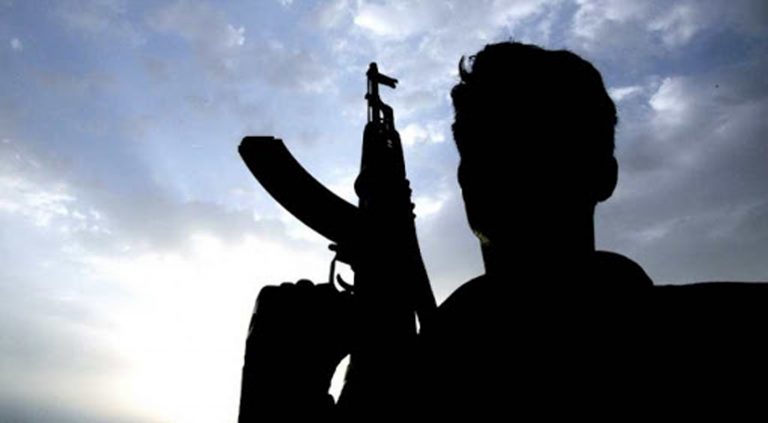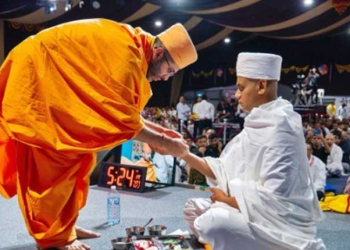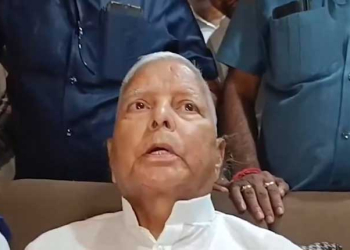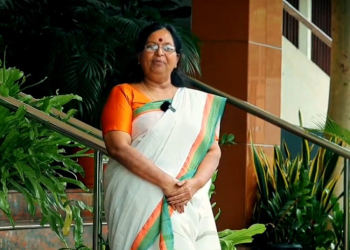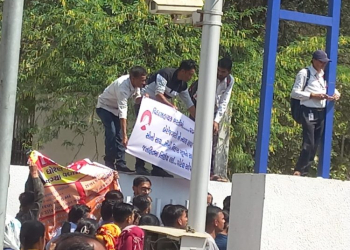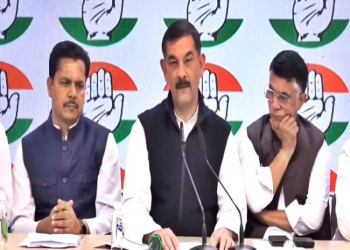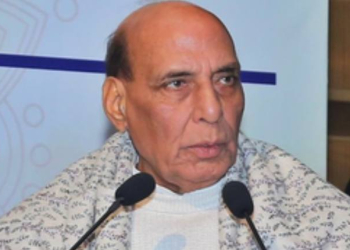Terrorist attacks are highly responsive to funding availability, and financial counter-terrorism can therefore be effective in reducing terrorism casualties, according to research conducted by Nicola Limodio, Assistant Professor of Finance at Bocconi University Visiting Fellow at the Economics Department and the Julis-Rabinowitz Center for Public Policy and Finance at Princeton University.
Everyone knows that terrorists need money and other assets, for weapons, training, travel and accommodation to plan and execute their attacks and develop an organization. Disrupting and preventing terrorist-related financial flows and transactions is one of the effective ways to fight terrorism. Not only can it prevent future attacks by disrupting their material support, but the footprint of their purchases, withdrawals and other financial transactions can also provide valuable information for ongoing investigations.
Without destroying the war economy in Kashmir, bringing peace to the troubled Indian state will remain a pipedream. Former Commandant of the BSF and researcher N S Jamwal estimates that Pakistan spends around $5 million annually (Rs 24 crore) to sustain militancy in Kashmir while India’s expenditure on counter-insurgency operations (CI-OPS) is around $1.46 billion annually (Rs. 730 crore). These figures are an indication of how every dollar spent on terrorist activities necessitates a financial commitment several orders of magnitude on counter-intelligence and physical expenditures in the target country. He is of the view that financing terrorism in J&K costs no more than $70-80 million annually, i.e., Rs 400-500 crore.
The need and importance for blocking finances to terrorist organizations were outlined and emphasized by Prime Minister Narendra Modi and the Home Minster recently while addressing a conference ‘No Money for Terror’ (NMFT) Ministerial Conference on Counter-Terrorism Financing in New Delhi recently. The two-day conference which was organised on 18th-19th November was a unique platform for participating nations and organisations to deliberate on the effectiveness of the current international regime on Counter Terrorism Financing and the steps required to address emerging challenges.
It was concluded in the conference that countering terrorism financing is an essential part of the global fight against the terror threat. As terrorists and terror groups continue to raise money with the use of various means, countries must make it a priority to understand the risks they face from terrorist financing and develop a policy response to all aspects of it.
State support is one of the major sources of political, ideological and financial support for terrorism. Certain countries support terrorists as part of their foreign policy. There must be a cost imposed upon countries that support terrorism. Organisations and individuals that try to create sympathy for terrorists must also be isolated. There can be no ifs and buts entertained in such matters. The world needs to unite against all kinds of overt and covert backing of terror.
The infrastructure used for cyber terrorism and online radicalisation is distributed while some entities also train the terrorists with weapons from remote locations as well as online resources. Communications, travel,logistics – there are many links in the chain in different countries. Terrorists should not be allowed to misuse differences in legal principles, procedures and processes in different countries. This can be prevented through deeper coordination and understanding between governments. Joint operations, intelligence coordination and extradition help the fight against terror.
As scholar and author Sushant Sareen have said in the context of Jammu and Kashmir that on one hand thousands of people have died, families and properties destroyed, and an entire society traumatised, the one set of people who have prospered beyond their wildest imagination is the separatist mafia. The huge fortunes built by separatists and terrorists in Kashmir are one of the worst-kept secrets in Kashmir. Over the years, Kashmir has been transformed into a war economy, which needs to be dismantled.
For decades, the focus of the Indian security establishment in hotspots around the country has been more on seizing weapons than on cracking down on the funding networks. While in the West, security agencies followed the money to bust criminal syndicates and terror networks, in India the thinking was that the problem wasn’t the money but the munitions. Unfortunately, elements in the Indian security establishment have also contributed to the separatist entrepreneurship in Kashmir by plying the separatists with huge amounts of money in the fond hope of weaning them away from Pakistan and eventually winning them over – the former Intelligence Bureau chief in Kashmir and later Research & Analysis Wing chief, A S Dulat, has admitted as much in his book on Kashmir. Essentially what this meant was that the separatists raked in the moolah from all sides – India, Pakistan, within Kashmir, foreign donors, and so forth.
Fortunately, there has been a policy change in New Delhi over past few years. The trigger for the policy change appears to have been the remarkable sting operation carried out by intrepid reporters of India Today TV who exposed the shenanigans of the merchants of death in the Valley. The outcry after the expose probably gave the government the justification it needed for strangulating the funding of the separatists and terrorists.
In fact, among the most interesting aspects of the India Today sting operation was that the separatists who were exposed didn’t seem at all surprised or suspicious that they were being offered money by middlemen from outside the state to provide protection for their operations and even create disturbances to further their interests. If anything, the terror financiers saw they are dealing with these reporters who were impersonating middlemen from mainland India as nothing out of the ordinary, almost as if it was business as usual.
Kashmiri militants obtain financial support from dozens of Islamic charities and radical Islamic organisations that channel funds to terrorist groups. The Pakistan-based Markaz-ul-Dawa-Ishad, the parent outfit of LeT and a religious organisation puts out regular advertisements in its in-house monthly magazine, Al Dawa. It urges Muslims to donate money to Kashmir ‘Jehad Fund’ and deposit it in bank accounts. 12 At its annual congregation in November 1998 at Muridke, near Lahore, the Markaz decided to raise Rs 5 crore including 3 crores to supply weapons to the Kashmiri ‘Jehad’, 1 crore for training and 1 crore to rehabilitate Kashmir refugees in POK. 13
Several First Information Reports (FIRs) filed by the Jammu & Kashmir Police in 1997 indicate that the senior leaders of the APHC receive donations from abroad. The nexus between narcotics and terrorism had led to a new term-Narco-Terrorism. It is recognised as one of the oldest and most dependable sources of terrorist financing, primarily because of the magnitudes of finance involved in both activities.
Extortion has emerged as a major source of terrorist funding. Police and Intelligence agencies believe that most businessmen, shopkeepers, government employees, contractors, especially those dealing in timber and persons with the sound financial background are easy targets. Hawala funding through a network of dealers which extends from the OIC countries to Delhi, Mumbai and other places in India also feeds militancy. Many of these Hawala dealers have begun wholesale/retail businesses as fronts to divert money to the J&K militant groups. Pakistani Finance Minister Shaukat Aziz, a former executive vice president of Citibank in New York said that US $2-5 billion moves through the Hawala system annually in Pakistan. This is higher than the amount of regular foreign transfers through the country’s banking system.
A US Treasury Department study identified Hawala as the preferred means of laundering monies from drug trafficking and other crimes in Pakistan. The report said Pakistan, India and Dubai on the Persian Gulf from the Hawala Triangle to move money secretly worldwide. One Abdul Rehman was arrested on December 6, 2001, with Rs 15.5 lakh in Delhi. This money was coming from Dubai for HM. Further, on the same day, Rs 40 lakh coming Hawala channels were recovered from a Kashmiri militant which was received by him through the Hawala channel. The Delhi Police arrested four Kashmiri militants on January 15, 2002, from the capital and seized Rs. 35 lakh from them. This money was received by militants from Pakistan through a Hawala operator in Chandni Chowk.
It can be safely concluded that terrorism in J&K is financed by a variety of sources, both national and transnational. While it costs the terrorists only a modest sum of money to destabilise the region and spread terror, the Indian government has to set aside huge outlays to tackle the problem. A more effective method of fighting terrorism would be to launch a multidimensional offensive against all the sources-narcotic trade, extortion, counterfeiting, fake charities-as well as methods of financing, namely, hawala and front companies.
(IANS)



